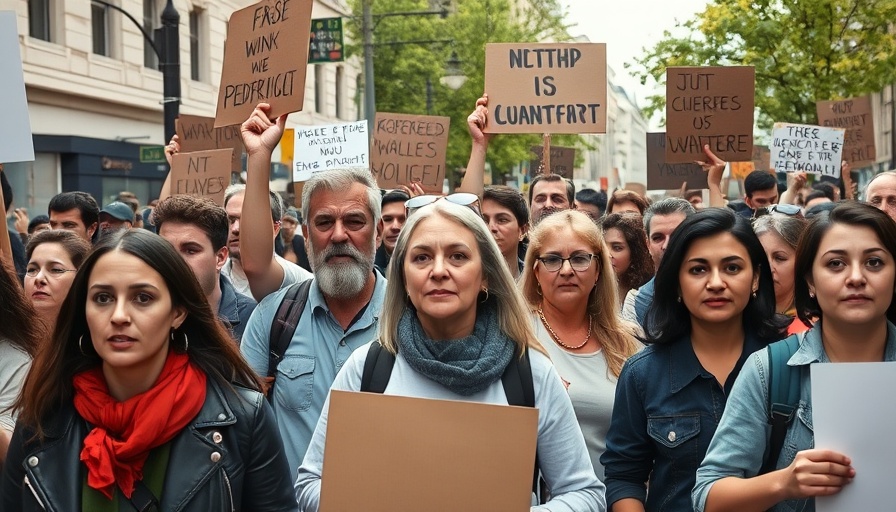
Recent Ruling on Immigration Stops: What You Need to Know
A recent decision by a federal judge in Los Angeles is reshaping the landscape of immigration enforcement in Southern California. U.S. District Judge Maame Ewusi-Mensah Frimpong issued a pair of temporary restraining orders that essentially bar U.S. immigration agents from detaining individuals without reasonable suspicion. This legal shift comes amid growing concerns about unlawful stops based on race, ethnicity, and social status.
Significance of Legal Protections Against Discriminatory Practices
The ruling emphasizes the constitutional rights afforded to all individuals, irrespective of their background. Judge Frimpong's orders require that immigration enforcement officers have concrete evidence before making detentions. This stipulation aims to curb the practice of racial profiling, which has plagued immigrants, particularly those from Latino communities, as highlighted by ACLU attorney Mohammad Tajsar.
Background of the Lawsuit Against Immigration Enforcement
This pivotal legal action was born from a lawsuit initiated by Public Counsel and the ACLU, aimed at addressing what they describe as unlawful 'roving patrols' conducted by immigration agents across Los Angeles County. The organizations argue that federal enforcement actions have often proceeded without sufficient legal justification, impacting innocent individuals and communities. According to Tajsar, it is crucial to hold the federal government accountable for these systemic abuses of power.
What This Means for Detainees
As part of the ruling, detainees must now have guaranteed access to legal counsel, including confidential telephone calls at no charge and without monitoring. By facilitating these legal rights, the ruling strengthens the protections for individuals detained by immigration officials, ensuring that they can defend themselves effectively and assert their rights under the law.
Government Reactions to the Ruling
While advocates for immigrants celebrate the court's decision, government officials, such as U.S. Attorney in Los Angeles Bill Essayli, have expressed their disagreement with the lawsuit's implications, asserting that practices adhered to by federal agencies remain within legal grounds. The disagreement highlights a significant divide between enforcement agencies and advocates striving for social justice and equity.
The Broader Context of Immigration Enforcement
This ruling is set against a backdrop of national debates about immigration laws and enforcement methods. Across the United States, immigration policies are often characterized by tension and controversy, particularly with different cities adopting varied stances on enforcement. Taking into consideration the diverse perspectives on immigration, this ruling forges a new path forward, prompting discussions on how similar legal principles can be adopted in other jurisdictions.
Future Implications for Immigration Policies
The implications of this ruling extend beyond the courtrooms of Los Angeles. As other states observe and respond, we may witness a ripple effect that challenges the status quo of immigration enforcement practices nationwide. Legal experts and activists are hopeful that this decision will signify a turning point towards more humane and just immigration policies, reshaping how immigration agencies operate in the future.
 Add Row
Add Row  Add
Add 




Write A Comment